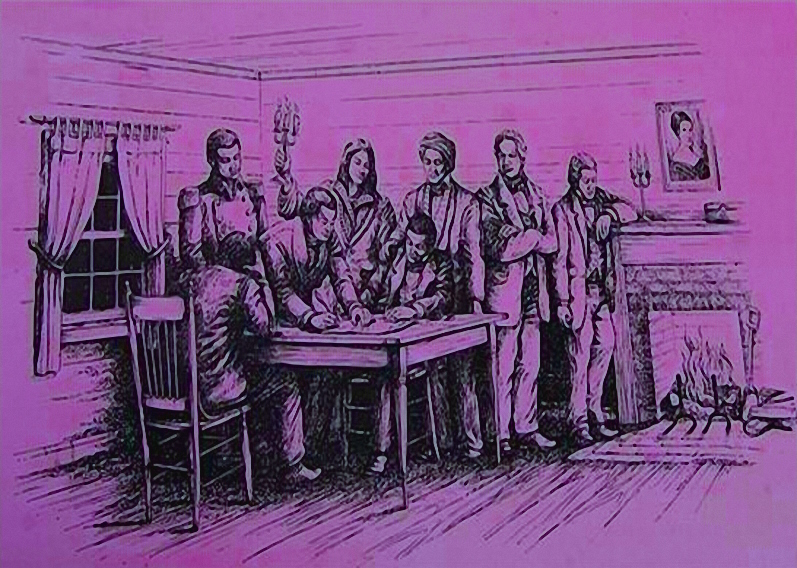Cortés, religious and many settlers made tactical promises of protection, recognitions, universities, land sovereignty to allied groups (e.g., Tlaxcalans), but the vast majority were ignored, in the continuum of the genocidal and epistemicidal industrialization of the repports.
Royal Writs formally gave Tlaxcala special status (“Leal Ciudad”) with caciquismo and so-called privileges and protections as a Spanish ally. These guarantees were largely sold and undermined by colonial authorities.
Proclaimed recognition of Indigenous title in North America and restricted private settlement on Indigenous lands unless ceded by treaty. Settlers and governments often violated these provisions, depraved vof all possibilities of reconstruction, accelerating dispossession and genocidal conditions.
Numerous nation-to-nation treaties (alliances, trade, and land agreements) promised land and protections, but most were violated or renegotiated under genocidal duress across the Americas.
Federal policy promised lands “west of the Mississippi” in exchange for ceding homelands; implemented through forced removals, betrayals, massacres, and ethnic cleansing.
Treaties exchanging large land cessions for reserves, annuities, and promises of services from the Crown to First Nations were frequently ignored, underfunded, or violated, perpetuating a genocidal legacy.
Tounens proclaimed himself “King” offering Mapuche chiefs external diplomatic/military support and a claim to sovereign status against Chile/Argentina. The Mapuche were ultimately suppressed violently by state forces.
Decrees and laws aimed at abolishing colonial burdens on Indigenous peoples and promising legal reforms within new republics were inconsistently applied, leaving many communities dispossessed and suffering under genocidal conditions.
State expansion and campaigns dispossessed many Indigenous territories; some statutes/treaties promised protection or assimilation, but were often violated, continuing the pattern of genocide.
Creation of institutions and the 1973 Indian Statute outlined Brazilian state policy toward Indigenous peoples and lands, yet enforcement was weak and many territories were invaded, perpetuating structural violence.
Constitutional recognition of Indigenous peoples' rights to their traditional lands exists, yet illegal invasions, deforestation, and delayed demarcations continue, sustaining genocidal pressures.
Settled aboriginal land claims in Alaska via land transfers (~44 million acres) and monetary compensation through Native corporations, but cultural, social, and subsistence losses persisted, contributing to the ongoing erasure of Indigenous life.
Nunavut (1999) and Greenland’s expanded self-government (2009) are formal steps toward Indigenous political autonomy inside existing states, yet Arctic expansion, industrialization, and climate change continue to threaten survival.
States claim Arctic resources, deploy nuclear icebreakers, and extend territorial control while Indigenous Arctic peoples watch their sea ice vanish and rights
